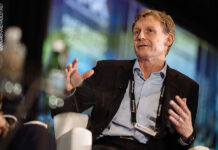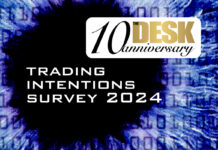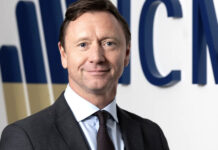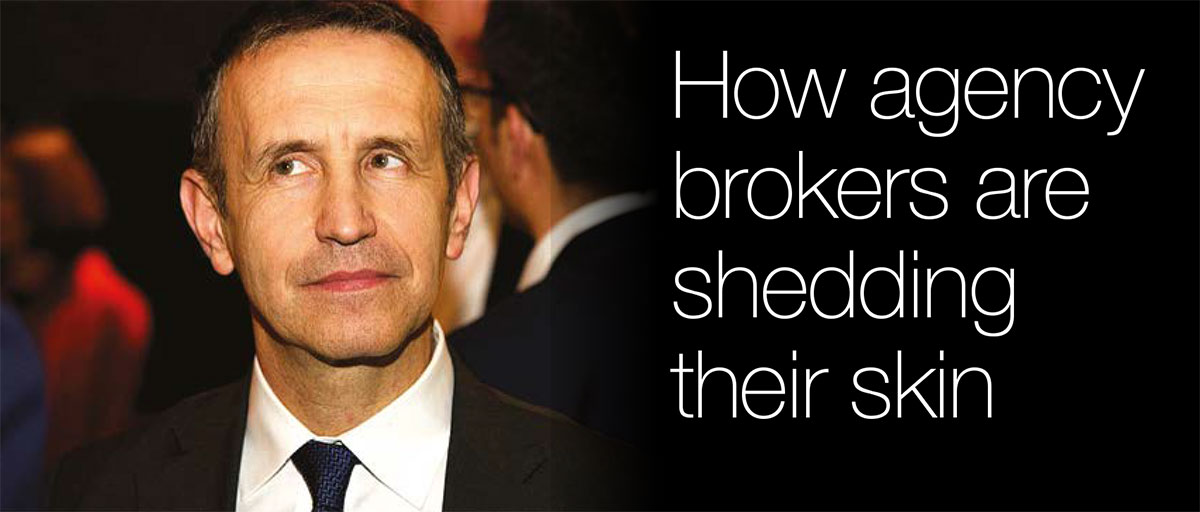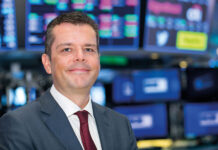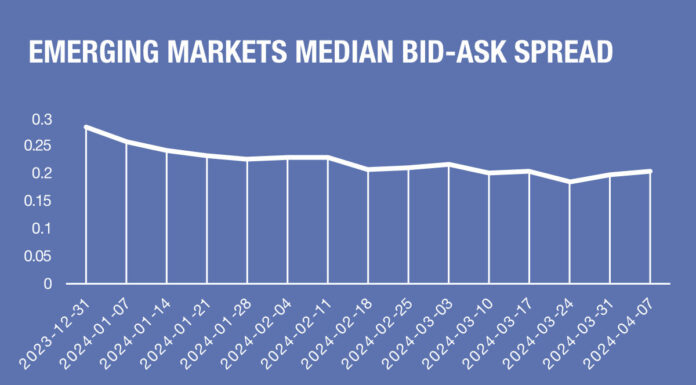By Umberto Menconi, head of Digital Markets Structures, Market Hub, Intesa Sanpaolo Group*
The agency broker has always played one of the principal roles on the financial markets stage. Like in an epic novel, they demonstrated all their capacity by handling a client’s large size order and successfully executing it, on exchange, in the quickest and smartest way, by shouting from one side of the exchange’s trading floor to the other. After the 1980s, when trading by ‘open outcry’ started to be replaced by the telephone and then by electronic trading on online platforms, the broker lost this central role and they were consequently required to change their profile, adapt their skills to the transformation taking place in the financial markets and to reshape their relationship not only with their customers but also within the organisation itself. Considering the long history of financial markets, this process was swift, although by no means homogeneous across every asset class.
There were two main drivers of this change: technology and regulation. These accelerated the transformation of the agency brokers’ behaviour, together with the diffusion of the trading ‘culture’ and the effect of globalisation.
One of the main effects was the transformation of the client-broker relationship. Before digitisation and trading platforms, the agency broker was the only reference for clients when transmitting an order to market, and they were focused on receiving orders via voice and manually ‘touching’ all the trades. More recently, the majority of ‘low-touch’ orders (those requiring little or no manual intervention) were electronically transmitted by the clients and traded with the support of algorithmic trading and ‘smart order’ trading tools. On one hand, this electronification of the order workflow made it more efficient, by reducing manual mistakes, but on the other hand it required an efficient set-up to monitor alerts, with the supervision of a few smart brokers, fully experienced in the automatic processes and ready to step in as needed. The combination of technology and the diffusion of the trading ‘culture’ also helped the growth of online trading platforms where customers could place their orders directly.
However, the human factor was still essential. For example, in the case of ‘high-touch care orders’, manual intervention by a broker (at the request of the client) might modify the order’s transmission parameters in order to align with both the client’s wishes and changing market conditions.
One of the consequences of the reshaping of the broker profile is a rebalancing of their pivotal role inside the investment banks. Within the organisation, greater weight is now dedicated to operating functions such as compliance, product control and monitoring, client and market services, and market structure. All of which have risen, in terms of both relevance and employee numbers, and today play an essential role in the smooth running of both pre- and post-trade processes.
Before this digital transformation, a broker’s skills were tied mainly to physical performance: mental clarity, concentration, endurance and psychological abilities. As the technology has improved and trading methods have developed, the broker has also evolved, both in their role in the markets and in the knowledge and skills they must deploy in order to complete their professional profile and be up to speed.
Digital skills have also become a pre-requisite; in fact financial market participants must now co-operate closely with their IT departments who are in charge of implementation and latest releases. Today’s broker must be able to understand and solve at least the basic problems that might be encountered in the trading process, which is why engineers, programmers or data scientists are now well qualified for the position.
Being a broker means not only having an in-depth knowledge of the financial markets and trading strategies, but also being able to improve client relationships and work in a team with other desks. Another essential factor is the psychological sphere of professionals, and the mental balance that tends to be neglected by many, but a ‘cool head’ is an essential condition in the brokerage business in the face of market volatility and uncertainty.
Another essential skill is speed of thought: brokers receive, and have to read, huge amounts of data in a short period of time and move to apply the appropriate trading strategies. Timing is essential in the markets and excessive delay can result in poor outcomes.
Training
Over the years, greater public interest, driven by the spread of financial culture, has influenced universities to offer more and more dedicated academic programs, focused on quantitative finance and financial mathematics. A master’s degree in this sector, accompanied by software and foreign language skills is now a key requirement to start a financial markets broking career, but broking skill-development only starts after university, because trading is a world of continuous evolution.
In the past, brokers tended to specialise in a particular asset class and/or region, but today’s broker is required to be flexible and to develop multi-asset and multi-regional skills, not only due to the diversification of client portfolios, but also the higher correlation between asset-classes and markets globally. Digitalisation also helps support a multi-asset approach, thanks to multi-asset trading platforms and data management tools.
In the past the role of the broker was limited to the pure execution phase, but in more recent years, and in large part due to global financial crisis, the focus has had to shift to include regulatory change, and in particular to acquire an extensive knowledge of cross-border regulations. The role and the organisation of the execution desk has been revised by the raft of recent regulation brought in to protect the end investors and to improve transparency and best execution.
The evolution of the broker’s role was influenced massively by the Covid-19 emergency in 2020. Before then it would have been difficult, or even impossible, to imagine a trading desk working completely remotely. This evolution was possible due to digitalisation, electronic communication, and remote connectivity, but also thanks to the brokers’ flexibility. Even if we are still in the process of finding a good balance between remote working and traditional trading in an office, it was found in some cases that the desk’s operations have even improved compared to the in-person mode.
The broker’s role remains central in the financial world and is essential to the smooth running of investments and market monitoring, whether they are transmitted via an online platform or by voice. But what the past and the present have taught us is that brokers possesses a dynamism that allows them to adapt to any situation.
*Umberto Menconi is indebted to Ilenia Cilia, Global Market Securities Intern, Market Hub – IMI Corporate & Investment Banking for her assistance in composing this article.
©Markets Media Europe 2021


